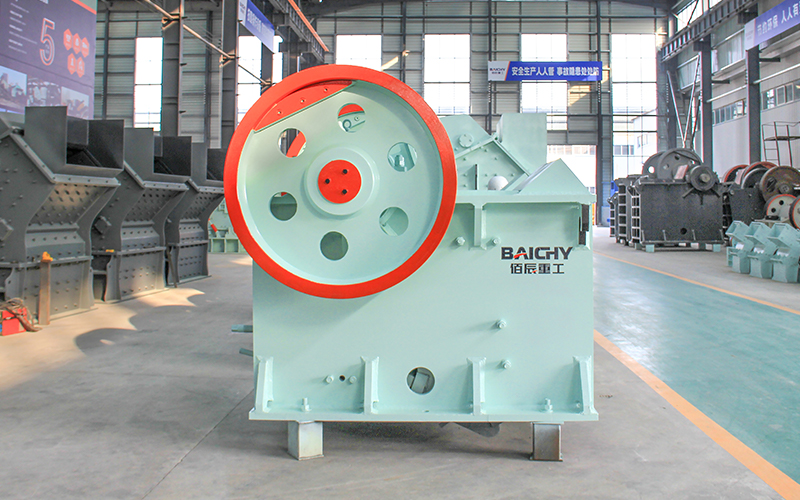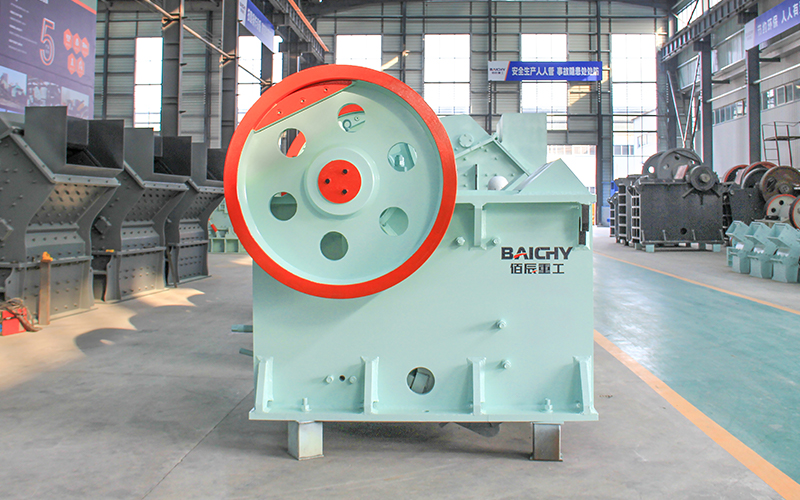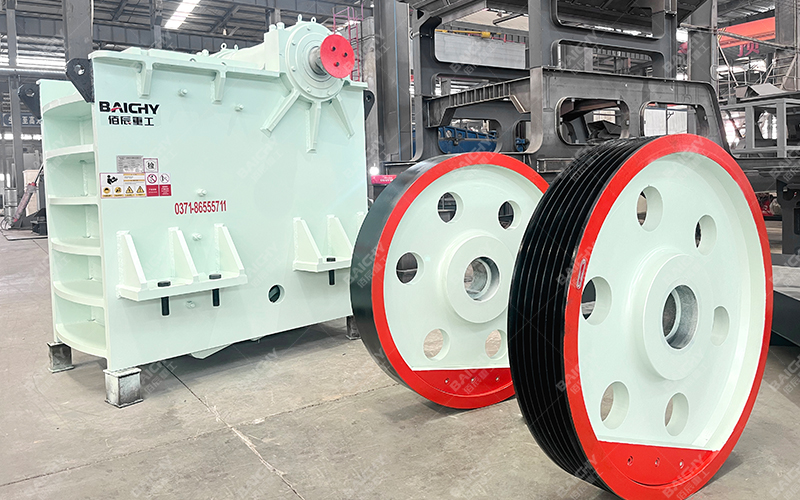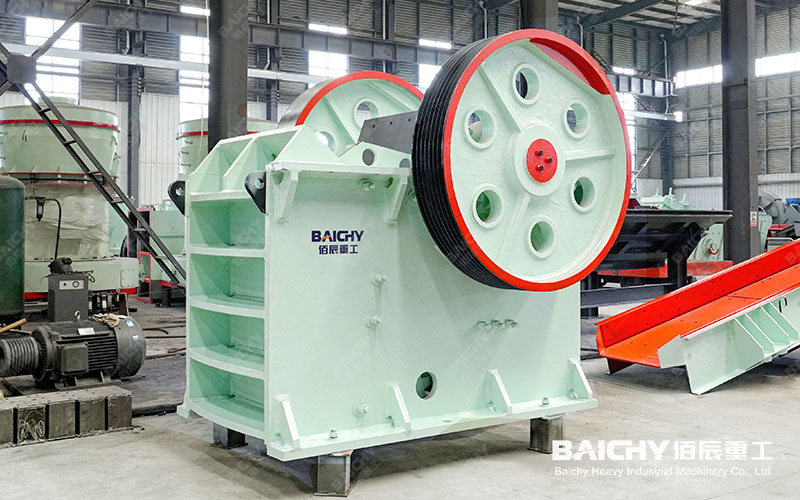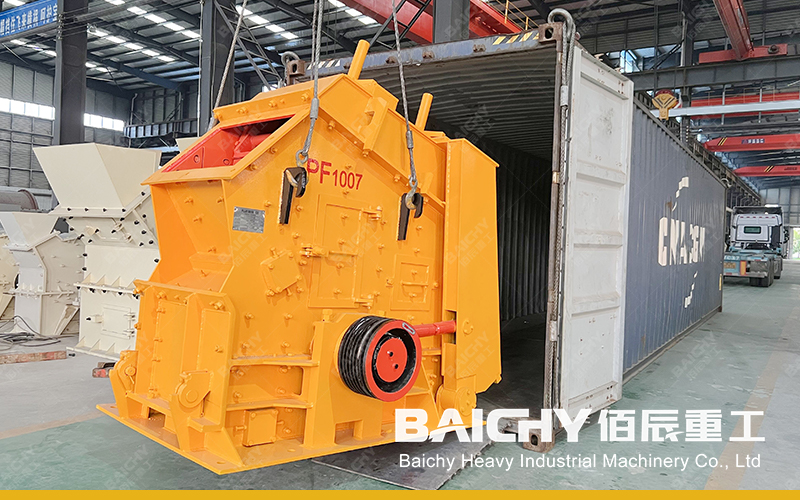
Impact crushers use impact force – as the name implies – to crush rocks and minerals into smaller sizes as opposed to pressure force used in, for example, jaw crushers. Impact crushers can be used in primary or secondary crushing applications and construction and demolition waste recycling.
What is an Impact Crusher?
An impact crusher is a type of crushing equipment that utilizes the impact force generated by the high-speed rotation of the rotor to crush materials.
The basic working principle of an impact crusher is that material is fed into a high-speed rotating turntable, which flings the material around at high speeds between a series of spinning hammers and the impact wall. The numerous collisions taking place inside the impact chamber causes the material to break apart. Upon reaching the specified size, the crushed material will be discharged.
Advantages of Impact Crushers
Impact crushers excel at producing a uniformly shaped, regular, and cube-like final product. This makes them the preferred choice when the result must be marketable.
Furthermore, impact crushers operate efficiently and consume relatively less energy compared to other crusher types. They are incredibly versatile and can handle a diverse range of materials, from concrete and soft rock to hard rock, gravel, and even asphalt.
With a generous feed inlet and spacious crushing chamber, impact crushers, when used with less abrasive materials, offer a cost-effective and dependable crushing solution. Moreover, they boast a high reduction ratio, making them even more appealing for various crushing applications.
Disadvantages of Impact Crushers
Impact crushers tend to need more upkeep than compression-type crushers, especially when dealing with hard and abrasive materials. The constant high-speed collisions inside the crusher, which break the rock into smaller pieces, lead to a lot of wear and tear. However, modern materials that resist wear have helped make impact crushers more in demand.
Additionally, crushing very soft materials can result in an excessive amount of fine particles. This not only leads to more dust pollution, but it can also be a concern for worker health and safety if dust control measures aren't implemented.
Applications of Impact Crushers
Despite its limitations, the impact crusher finds widespread use in various industries. It is commonly employed in quarries, mining operations, recycling plants, and construction sites for the production of aggregates, sand, and gravel. Its ability to handle a wide range of materials and produce a cubic-shaped end product makes it a valuable addition to any crushing operation.
Configuration of an Impact Crusher Production Line
A typical impact crusher production line consists of a vibrating feeder, an impact crusher, a screening machine, and a conveyor system. The vibrating feeder ensures a steady and controlled flow of material into the crusher, while the screening machine separates the crushed material into different sizes for further processing or use. The conveyor system transports the material from one stage to the next, completing the crushing and screening process.
Recommended Manufacturers of Impact Crushers
When choosing an impact crusher, it is essential to select a reputable manufacturer with a proven track record of delivering high-quality equipment. BAICHY has been a leading manufacturer of crushing and screening equipment for decades. We offer a wide range of impact crushers designed to meet the specific needs of our customers, ensuring efficient and reliable operation.
In conclusion, while the impact crusher has some disadvantages, its numerous advantages and versatility make it a valuable addition to any crushing operation. When selecting an impact crusher, it is crucial to consider the material properties, production requirements, and manufacturer's reputation to ensure a successful investment in crushing equipment.




